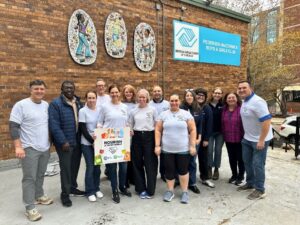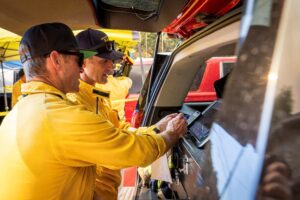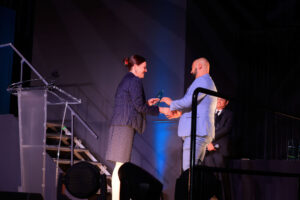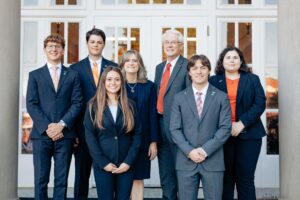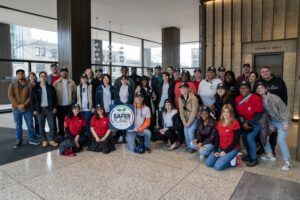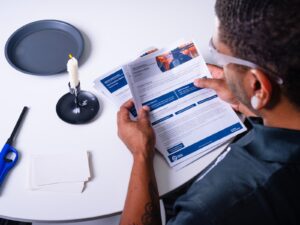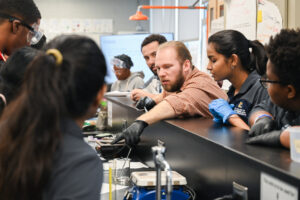Driving Global Innovation at STS Forum
At the 20th annual STS Forum held in Kyoto, Japan, from Sept. 30 to Oct. 3, more than 1,500 leaders from industry, government, and academia convened to discuss the ability of science and technology to improve the human condition and drive innovation globally.
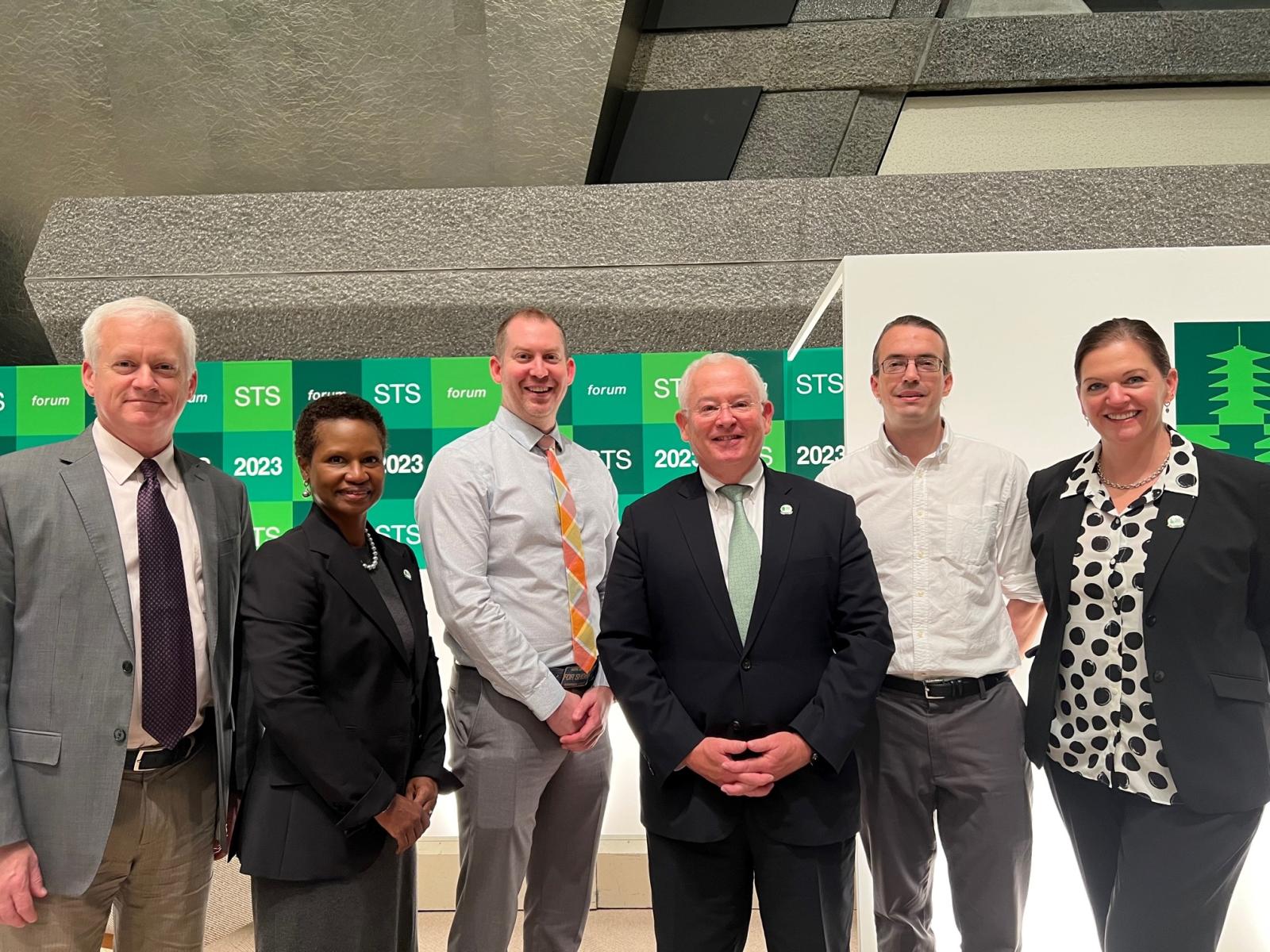
As a sponsor of the Forum, representatives from UL Research Institutes (ULRI) included President and CEO Terry Brady, Senior Vice President and Chief Operating Officer Dr. Charlotte Farmer, Senior Vice President and Chief Research Officer Dr. Chris Cramer, Vice President of Communications and Public Affairs Kristen Delphos, Fire Safety Research Institute (FSRI) Principal Research Engineer Craig Weinschenk, and Digital Safety Research Institute (DSRI) Lead Software Engineer Jesse Hostetler.
The event kicked off on Saturday with a Forum for Unity, Science, and Empowerment, bringing together women in attendance to discuss the specific challenges women face in academia and science, and how a continued commitment to diversity, equity, and inclusion creates better outcomes for our global communities.
On Sunday, the plenary session began with an address by Japan’s Prime Minister Fumio Kishida, who spoke about the importance of marrying the speed of innovation with the challenges of ethical considerations. Kishida expressed his desire to promote such advanced technologies as generative artificial intelligence (AI), while also noting the importance of seriously addressing the potential negative social impact and ethical issues associated with such technologies.
Machine learning (ML) and AI was a topical thread that wove through many of the Forum’s learning sessions. Hostetler, who participated as a Young Leaders Network delegate observed:
“There is a great deal of interest in AI/ML technology across government, industry, and academia. This was already clear, of course, but still, I was surprised by how many speakers and panelists in the general-interest sessions at least mentioned AI at some point. I was also encouraged that every discussion of AI that I participated in included a lot of discussion about its risks and how to mitigate them. This community seems to have a healthy degree of skepticism.
“We have a great opportunity right now to position UL Research Institutes and UL Standards & Engagement within the AI safety space. In at least two of the sessions I attended, I heard a consensus that ‘standards, not regulations’ are needed for AI, because regulation moves too slowly. We can fill an industry need to establish trust in AI products.”
The concurrent sessions on Sunday and Monday were segmented into eight tracks: Energy; Climate Change; Earth and Commons; Life Sciences; Innovative Engineering; Cooperation in Science and Technology; Science and Technology Education; and Digital Society.
Dr. Cramer noted another important theme that spanned many of the sessions — societal equity. He commented:
“The most thought-provoking session I attended was ‘Quest for Digital Equity,’ as it highlighted the extraordinary divide between wealthy societies and impoverished ones, particularly in the global south. For many of the attendees, equity isn’t getting the latest app or gadget, it is having stable electricity — or even any electricity at all. Until that problem is solved, the benefits of a digital society cannot accrue.”
On Monday afternoon, Brady led a panel discussion on “Science and Technology for Business.” He noted, “Within UL Research Institutes, we have developed a lot of answers over the past 130 years, but we don’t have all the answers. Conferences like STS Forum help us figure out where to place the emphasis on our research endeavors. It is a navigation beacon for where society’s most urgent problems lie. The networks we form in these rooms and beyond are really what gives value to belonging to this organization. Together, we are making the world a safer place.”
Weinschenk, who participated in the Forum as a Young Leader Alumnus, shared his thoughts about the Forum’s conversations:
“ULRI’s research agenda is extraordinarily well aligned with respect to targeting the full array of societal technology challenges or ‘shadows’ as described by speakers.”
Delphos had a surprising observation after participating in various sessions as a communications professional:
“It was enlightening for me to validate what I’ve thought since joining UL Research Institutes: Science needs more storytellers. In almost every session I attended there was a general recognition that educating the public on these complex scientific and technological problems is critical. I heard one of the speakers say, ‘science and technology is an instrument of a just society, conceived in the hearts and minds of people, not the machines, which are man’s creation.’ As a storyteller, I wanted to share more broadly what the STS Forum is all about and why it matters. Storytelling humanizes science by highlighting the people behind the research – their motivations, struggles, and triumphs. Storytelling makes scientific narratives relatable and inspiring. The people in the room at the Forum are connecting the dots, and moving innovation forward, but public engagement could be improved. I hope we can change that.”
As ULRI continues to participate in this Forum in future years, ULRI will look for more opportunities to tell stories around insights from the global Forum.

